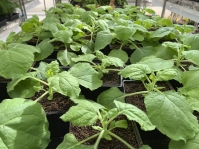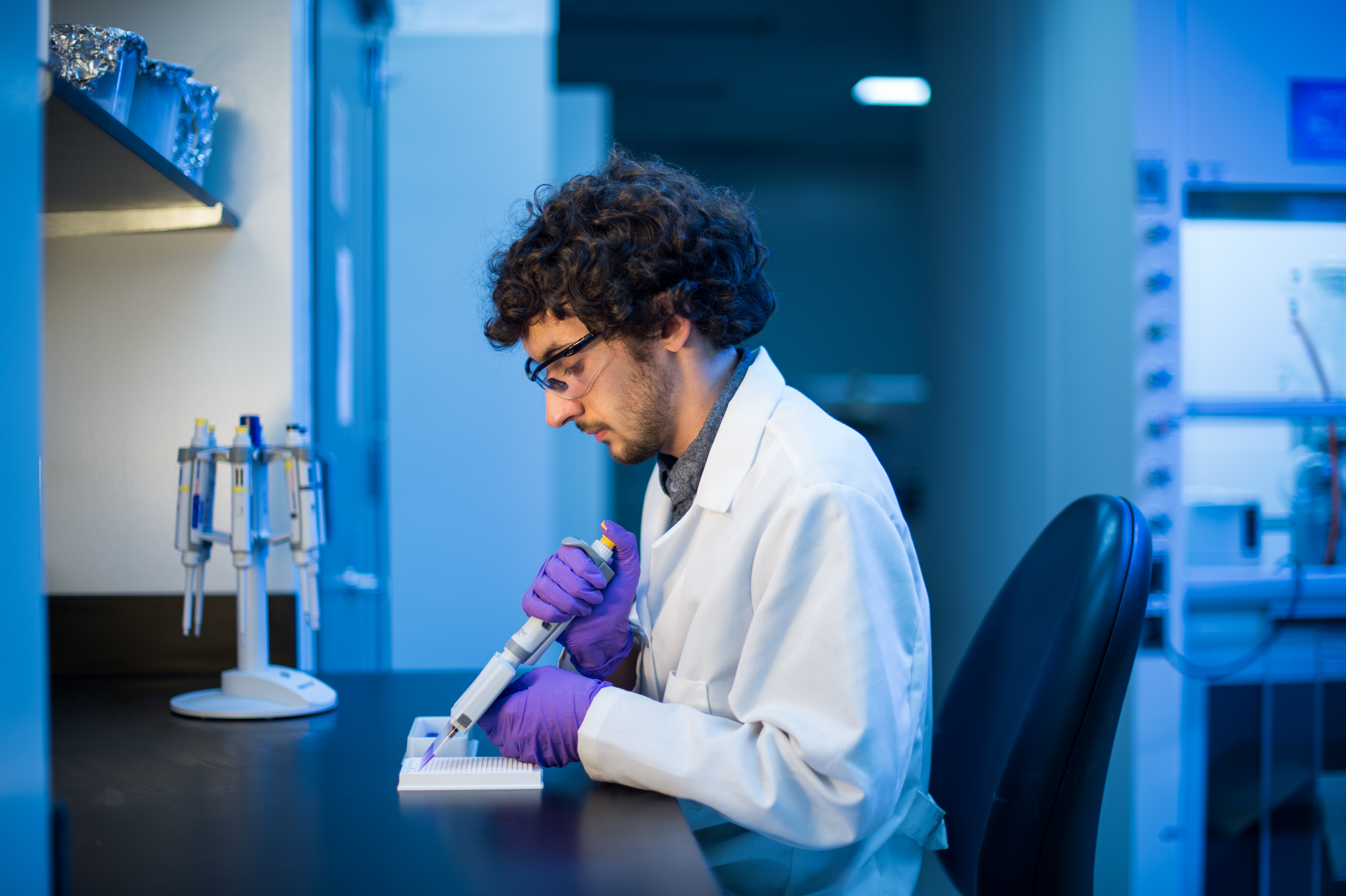Medicinal chemistry involves the application of a number of specialized disciplinary approaches all focused on the ultimate goal of drug discovery. Drug target identification and validation, rational (target-based) drug design, structural biology, computational-based drug design, methods development (chemical, biochemical, and computational), and “Hit-to-lead” development are all aspects of medicinal chemistry. The techniques and approaches of chemical biology, synthetic organic chemistry, combinatorial (bio)chemistry, mechanistic enzymology, computational chemistry, chemical genomics, and high-throughput screening are all used applied by medicinal chemists towards drug discovery.
For our Pharm.D. students, medicinal chemistry is integrated with pharmacology to present a coherent picture of the principles of drug action. Pharmacology mainly deals with drug action at the cellular, tissue/organ and organism levels. Medicinal chemistry focuses on the molecular aspects of drug action: interactions with the drug targets from both the drug and the target point of view, the relationship of drug chemical structure to drug action and the effects of metabolism on the drug structure and hence its action.
- History of Medicinal Chemistry at the University of Michigan
In 1913, the University of Michigan first outlined a graduate program offering M.A., M.S., Ph.D. and D.Sc. degrees in a joint effort between the Graduate Department (now the Horace H. Rackham School of Graduate Studies) and the Pharmacy Department (now College of Pharmacy). As a discipline, Medicinal Chemistry in the United States started with the appointment of Dr. F. F. Blicke as Assistant Professor of Pharmaceutical Chemistry in 1926. Prof. Blicke initiated the first graduate education program in Pharmaceutical Chemistry, focusing on synthetic organic chemistry. The program expanded in the 1950s to include analytical aspects and pharmaceutics. After Prof. Blicke’s retirement in 1960, his former student, Prof. J. H. Burkhalter returned to the College and argued for an independent graduate education program in Medicinal Chemistry. Along with the support of Graduate School Dean Alfred Sussman and the participation of a core group of interdepartmental faculty (within and outside of the College of Pharmacy), in 1967 Prof. Burkhalter established the Interdepartmental Program in Medicinal Chemistry (Med Chem IDP). The Med Chem IDP was established to train students in a broad range of chemically-based disciplines so that its graduates are able to apply the rigor and methods of the physical sciences to drug discovery research. Subsequently, in 1973 Prof. Raymond Counsell and in 1977 Prof. Leroy B. Townsend were appointed as Director of the Med Chem IDP. The Med Chem IDP is administered by the Horace H. Rackham School of Graduate Studies with direct oversight by the College of Pharmacy.
In 1999, in response to the significant growth of the College of Pharmacy under previous Dean Ara G. Paul, then Dean George L. Kenyon initiated a process of departmentalization of the College of Pharmacy. Prof. James K. Coward was the first Chair of the Department of Medicinal Chemistry and Director of the Med Chem IDP. The Department of Medicinal Chemistry is the administrative component of the College of Pharmacy that oversees the Medicinal Chemistry faculty, research scientists and postdoctoral fellows (e.g., recruitment, mentoring, evaluation), has responsibility for the medicinal chemistry Pharm.D. and Ph.D. courses and seminar program, and coordinates the participation of medicinal chemistry faculty in College-level committees and other administrative duties.
The Department of Medicinal Chemistry is the home for the Med Chem IDP Ph.D. program, which serves to administer the Med Chem Ph.D. program, with responsibility for graduate student recruitment, training/mentoring, progression and graduation. The Med Chem IDP includes all faculty from the Department of Medicinal Chemistry as well as select faculty from the Department of Pharmaceutical Sciences in the College of Pharmacy and a variety of schools (e.g., Literature, Science and the Arts, Medical School) and departments at Michigan (e.g., Biological Chemistry, Biophysics, Chemistry, Pathology, Pharmacology, Radiology). Approximately half of the Med Chem IDP faculty have their primary appointments outside of the Department of Medicinal Chemistry. These faculty currently mentor ~20% of the Med Chem Ph.D. students and are fully engaged in the Med Chem Ph.D. program in many other ways including seminar attendance, recruitment of students, teaching in our graduate courses, and serving on candidacy and dissertation committees. There is an annual meeting of the Med Chem IDP faculty to review the status of the IDP and the students.
- Department Organizational Chart







